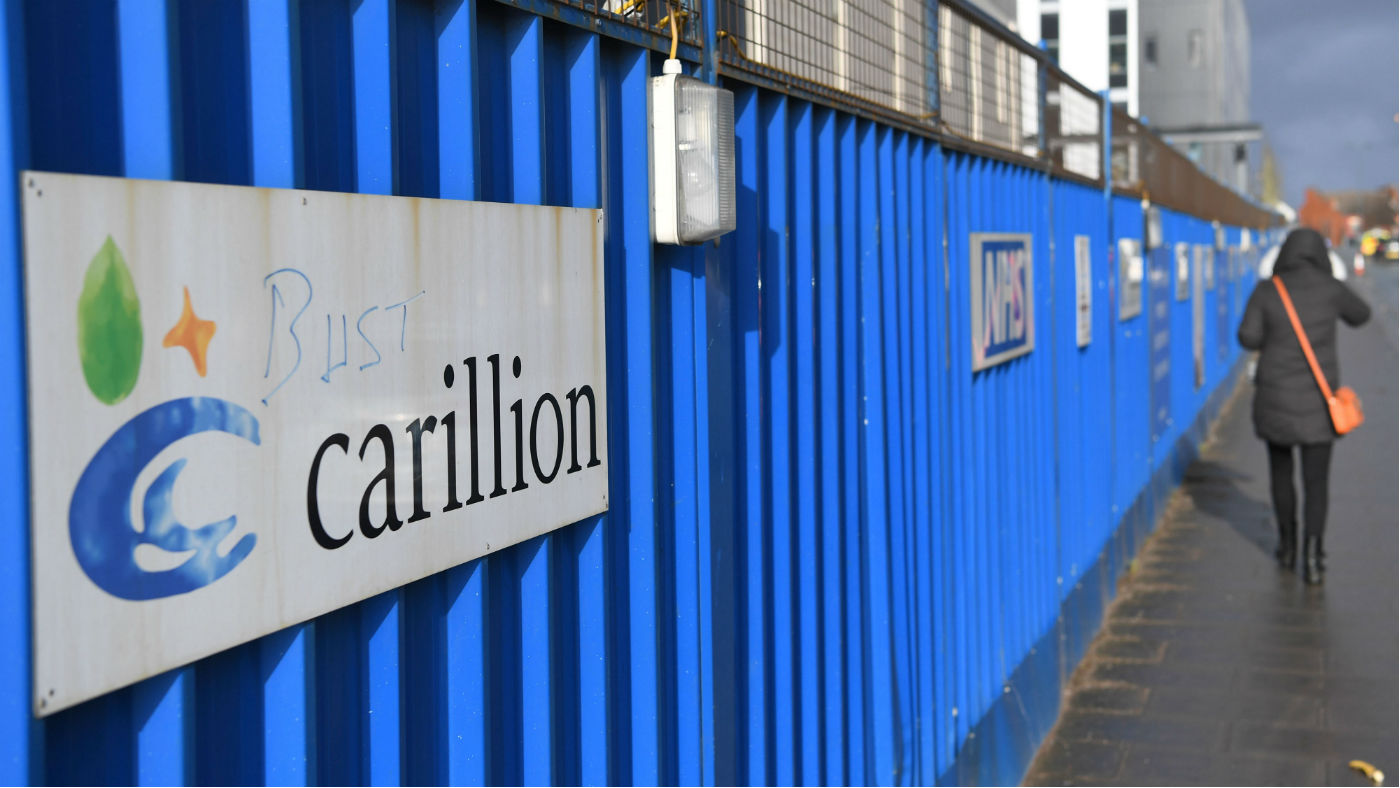Could Capita be the new Carillion?
Precarious state of government contractor raises fresh questions about private delivery of public services

A free daily email with the biggest news stories of the day – and the best features from TheWeek.com
You are now subscribed
Your newsletter sign-up was successful
The government contractor Capita’s decision to launch a drastic rescue plan has led to fears it could follow Carillion into liquidation, leading to fresh doubts about the integrity of government outsourcing.
In light of last week’s collapse of Carillion under a mountain of debt and with an estimated pension deficit of up to £990m, Capita’s shares fell by almost a half yesterday after its chief executive “slashed profit forecasts, announced plans to tap the market for £700m of investment and suspended a dividend that was worth more than £200m to shareholders last year”, says The Guardian.
The company provides services to the public sector, running London’s congestion charge scheme, call centres for Jobseekers’ Allowance, teachers’ pensions and an electronic monitoring service for prisoners. It also helps local authorities collect council tax.
The Week
Escape your echo chamber. Get the facts behind the news, plus analysis from multiple perspectives.

Sign up for The Week's Free Newsletters
From our morning news briefing to a weekly Good News Newsletter, get the best of The Week delivered directly to your inbox.
From our morning news briefing to a weekly Good News Newsletter, get the best of The Week delivered directly to your inbox.
Despite having a net debt in excess of £1.1bn and a pension deficit of £380m, Capita won 154 government contracts last year, according to Tussell, which analyses UK public sector contracts.
“Capita’s problems raise wider questions about the health of the UK’s outsourcing sector,” says the Financial Times. The market “has been hit by a slowdown in new contracts and a squeeze on margins as a result of government attempts to extract more value from suppliers”.
The Government dismissed any comparison between Capita the bankrupt Carillion, saying “we do not believe that any of our strategic suppliers are in a comparable position”.
While both firms have struggled with a lack of cash, Capita boss Jonathan Lewis will be hoping that he’s avoided another Carillion crisis by acting now to try to raise money.
A free daily email with the biggest news stories of the day – and the best features from TheWeek.com
“If Carillion had made an announcement like this a few years ago - raising money to pay off debt, admitting a slow-down in the market, owning up to both underinvestment and an over-reliance on buying other companies to find growth - then it might still be with us now,” says the BBC’s Dominic O’Connell.
“Carillion left it too late,” agrees the Daily Telegraph, “meaning by the time it came to raise money the market was not interested.” But after the embarrassment of Carillion, “the government is also unlikely to let Capita collapse”.
While Capita may not share the same fate as Carillion, its share-price plunge has led to calls for greater government scrutiny and a review of the whole practice of outsourcing and public-private partnerships.
“The Tories’ privatisation dogma risks lurching our public services from crisis to crisis, threatening jobs, taxpayers’ money and leaving people without the services they need,” said Jon Trickett, the shadow minister for the Cabinet Office. “The government must end its ideological attachment to private profit in public services and instead start putting the public interest first.”
With Capita’s cost-cutting programme expected to result in job losses among its 67,000 employees, 50,000 of whom are in the UK, pressure is on the company to review its pension scheme and executive salaries.
Its former rival Carillion faced criticism for continuing to pay dividends and big executive salaries as debts mounted.